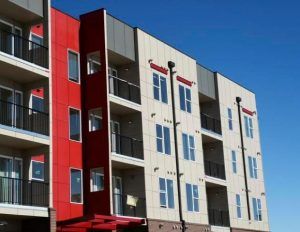
Denver has a housing crisis
Denver’s brilliant idea to tackle affordable housing.
As Denver’s popularity grows, so does the demand for housing in the area. With the huge increased demand Denver metro has been leading the country in price appreciation. The unfortunate byproduct of this large increase in price is that many residents are now being priced out of the metro areas. According to a recent analysis done by the Colorado Association of realtors that was published in the Denver Business Journal, the average home price is nearly 400k. To afford the median home and get the best rate a buyer would likely have to come up with 20% down (80k) and have a salary north of 75k (assuming not allot of other debt). This prices out a large number of buyers that cannot even come close to affording the median home in Denver.
So what should be done? I recently read an article in the Denver Post titled: Denver is close to deciding how much developers and property owners should pay to aid affordable housing. The premise is how should the city tackle the affordable housing epidemic. The proposal is to increase fees on developers and also “share the burden” with property owners by increasing property taxes.
On the surface this sounds like a noble cause that the majority of property owners should support, but there is one major problem. This solution, in my opinion, will do nothing to alleviate the shortage of affordable housing and will likely do the opposite and exacerbate the current shortage.
Let’s expand on this premise. Say you are a property owner that owns a rental property. As taxes go up, the natural reaction by a property owner is to increase the rent to cover the increase in taxes. With the shortage of affordable units, there is considerable demand and therefore the rent increase to the tenant will likely be absorbed. This increase will further decrease the affordability for renters.
On the other side of the coin, the theory to basically increase the building costs on developers via an impact fee will also have the wrong effect on affordable housing. By increasing the costs to develop a property, builders will continue to migrate to the higher end of the market where these increases can be absorbed by the end user. This ultimately will continue the cycle of price appreciation in the area.
So what is the solution? If a tax is needed it should be a consumption tax. Although counter intuitive/ on the surface illogical, for example Denver could put a special tax on the purchase of an automobile. This would raise revenue for affordable housing projects without driving up prices even further. Denver needs to increase revenue from sources other than real estate if they are going to be successful in mitigating the affordable housing crisis.
Although taxing autos or other goods/services is likely not the most palatable solution, continuing to burden property owners/ developers with taxes has the opposite effect by reducing the already scarce affordable units.
Written by Glen Weinberg, COO/ VP Fairview Commercial Lending. Glen has been published as an expert in hard money lending, real estate valuation, financing, and various other real estate topics in the Colorado Real Estate Journal, the CO Biz Magazine, The Denver Post, The Scotsman mortgage broker guide, Mortgage Professional America and various other national publications.
Fairview is a hard money lender specializing in private money loans / non-bank real estate loans in Georgia, Colorado, Illinois, and Florida. They are recognized in the industry as the leader in hard money lending with no upfront fees or any other games. Learn more about Hard Money Lending through our free Hard Money Guide. To get started on a loan all they need is their simple one page application (no upfront fees or other games).